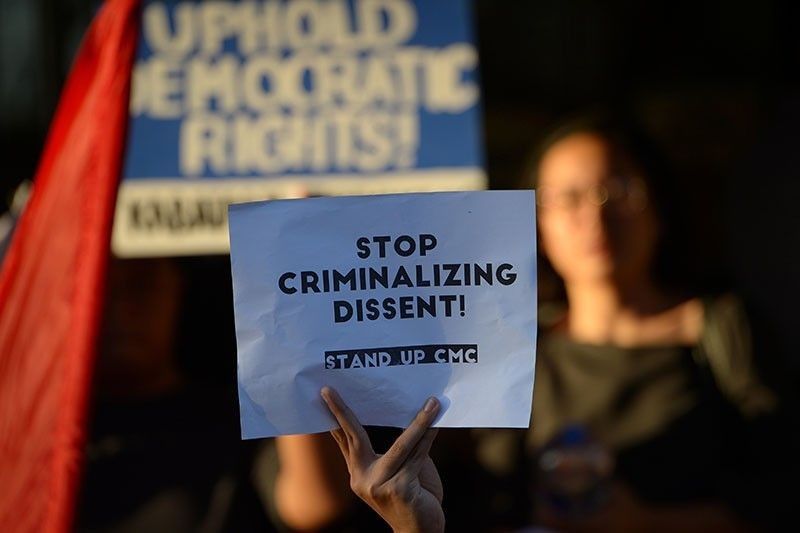Digital News Report: Filipinos more 'cautious' of expressing political views

MANILA, Philippines — More Filipinos are wary of expressing their political views compared to the global average, a new study on news consumption patterns found, coinciding with concerns that civic space in the Philippines is shrinking.
This is based on the country profile of the annual Digital News Report (DNR) by the Reuters Institute for the Study of Journalism, which featured results of a poll conducted among 2,284 Filipinos from late January to early February in 2023. This year’s global report by the Reuters Institute also surveyed over 93,000 online news consumers in 46 markets covering half of the world's population.
According to the report, at least 81% of Filipinos were cautious about voicing their political views online and 78% were similarly concerned about political conversations offline. This is higher than the global finding that just over half of those surveyed in all media markets were concerned about expressing political opinions both online (54%) and offline (52%).
The report also noted that media markets with more active participants like the Philippines often exhibit higher concerns about discussing politics online.
“These perceptions are particularly high among respondents in countries such as the Philippines (81% online, 78% offline) and Peru (70% online, 67% offline), where citizens may feel the chilling effects of political unrest, online intimidation tactics, or other threats to free expression,” the study said.
Globally, there is little difference between people's wariness in expressing political views online and offline, according to the study.
"There are clearly chilling effects, but it is not always clear they are specific to digital media," it noted.
Concerns about joining political conversations tend to be more obvious among political partisans, the highly educated and those more interested of politics, regardless of medium, the study stated.
Red-tagging, threats continue
The red-tagging of journalists has not let up under the Marcos administration, and "the targets come from mainstream and alternative media alike," said University of the Philippines journalism professor Yvonne T. Chua, who authored the Philippines-specific report.
These include journalists from ABS-CBN and GMA networks, Philippine Daily Inquirer, Rappler and Bulatlat news sites, the community paper Northern Dispatch, and representatives of media organisations such as the National Union of Journalists of the Philippines.
RELATED: NUJP pushes back vs NTF-ELCAC's red-tagging of media
Chua also noted that among those engaged in red-tagging is far-right broadcast network Sonshine Media Network International (SMNI), which is owned by religious leader Apollo Quiboloy. Quiboloy is himself a serial red-tagger and is wanted by the Federal Bureau of Investigation for sex trafficking and corruption charges.
With SMNI included in this year’s DNR survey, 12% of respondents said they accessed online news from SMNI, “demonstrating its popularity since the 2022 election despite having been flagged for peddling disinformation,” Chua added.
A survey by Social Weather Stations in May found that nearly half or 47% of adult Filipinos considered it dangerous to release content critical of the Marcos Jr. administration.
RELATED: SWS: 47% of Filipinos say it is dangerous to publicly criticize the Marcos Jr. admin
- Latest
- Trending

































